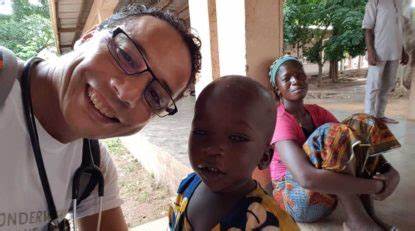During our last mission in Kalembe Lembe there was a patient with an incurable condition.The boy’s parents were desperate and wanted to do everything to heal their son. Although we have already made much progress in the hospital, we sometimes have to say that medicine has its limits. Both the child’s family and the staff suffered greatly. The child and the parents needed a palliative setting to help them accept the disease and ease the suffering.However, the staff was not trained for this. When we found this, we saw the need to start a palliative care program.
We contacted another organization, Pallia Familli, which has many years of experience in this field.Together we have set up a pilot project in Kalembe Lembe. We have already made staff aware of the theme and we have funded a national training to strengthen their capacity on different themes in the field of palliative care.
Feedback from the health team on the first awareness-raising activities was very positive. The need was clearly present, and the staff suffered because they could not properly guide and relieve the patients, and the patients themselves suffered under guidance that was not tailored to their situation. By raising awareness they found some answers to their concerns. Eg: As a health worker, do I have to supervise my siblings? What are our own limits? etc.
Now we also want to enable guidance within the hospital. Because this service did not exist at all in the hospital, intensive supervision of the care staff is provided. A mobile multidisciplinary team accompanies the staff 3 times a week until the end of the year. This multidisciplinary team consists of doctors, nurse (s), a physiotherapist, a music therapist and even a spiritual counselor.
strengthen their capacity on different themes in the field of palliative care.
The project aims to sustainably improve the skills of the health workers in the SHC Kalembe Lembe in the treatment of pediatric patients with chronic conditions in the palliative phase.
For example, patients with painful and life-threatening conditions benefit from holistic treatment and optimal pain management. It also aims to promote the exchange of practices and expertise with a view to the integration and accessibility of palliative care in other care structures.
Specifically, the following is taught:
– Theory: concepts and definitions of palliative care, the importance of multidisciplinarity, the management of global suffering and physical pain.
– Practical: how to guide the sick patient and his family / friends. How to deal with pain, spiritual references, alternative care (art therapy, music therapy)
The ultimate goal is to develop the integration of palliative care for children in health care and services to vulnerable population groups in the hospital of Kalembe Lembe.


